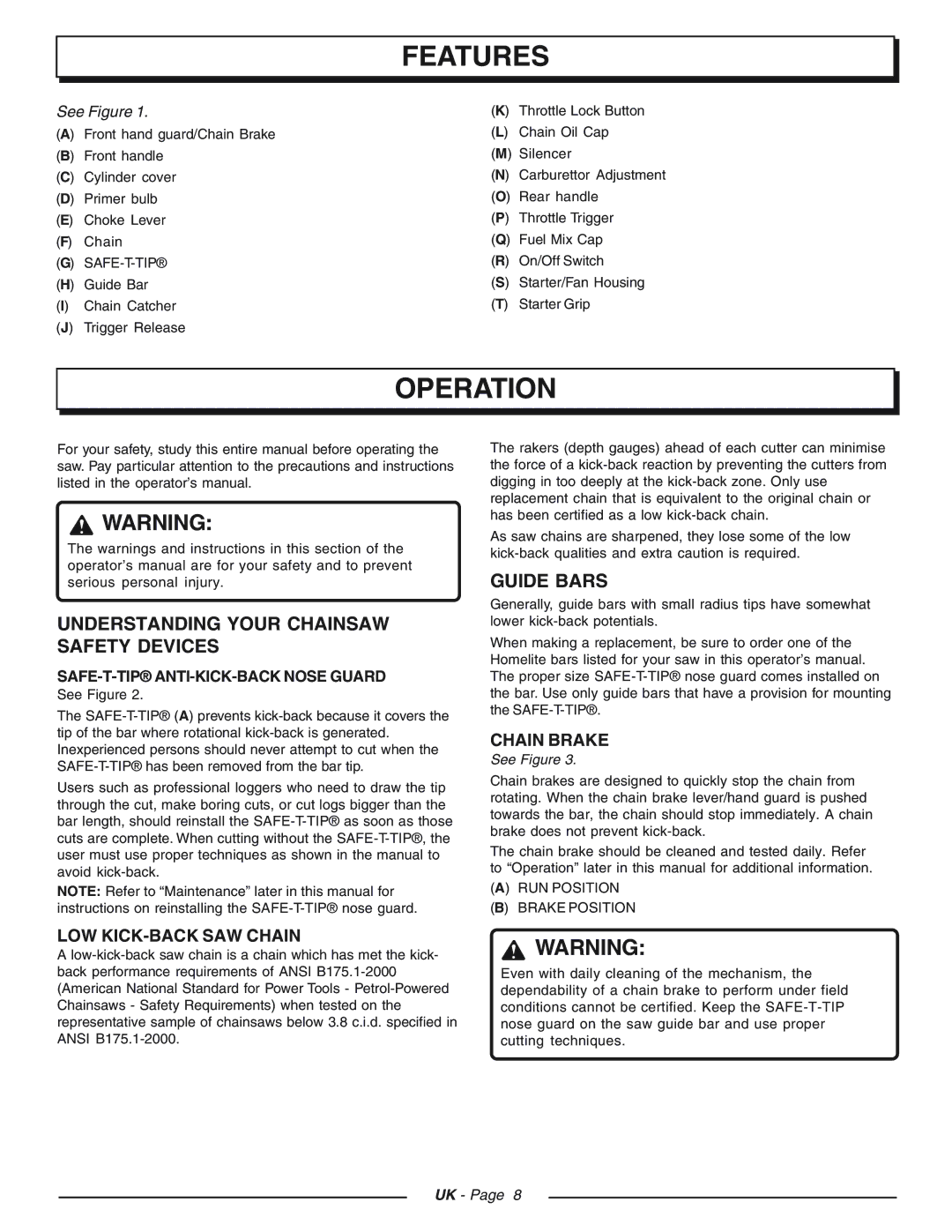CSP3816 - UT74123D, CSP4518 - UT74125D, CSP4520 - UT74127D specifications
The Homelite CSP series of chainsaws, including the CSP4520 - UT74127D, CSP4518 - UT74125D, and CSP3816 - UT74123D, exemplifies innovation and efficiency in the world of outdoor power equipment. Recognized for their user-friendly design, these chainsaws are tailored for both novice users and seasoned professionals, delivering performance and reliability across a range of cutting tasks.The CSP4520 model features a robust 20-inch bar and chain, making it ideal for tackling larger jobs, such as felling trees and cutting firewood. Its powerful motor ensures consistent performance, while the lightweight design reduces fatigue during extended use. The inclusion of an automatic chain oiler enhances longevity and smooth operation, ensuring that the chain operates fluidly and efficiently.
The CSP4518, with its 18-inch bar, offers a balance of power and maneuverability. This chainsaw is perfect for homeowners and landscapers who need to perform pruning, trimming, and light cutting tasks. The tool-less chain tensioning feature simplifies adjustments, making it easy for users to maintain optimal performance without the need for additional tools. Additionally, the ergonomic handle design provides comfort and control, allowing for precise cutting.
Meanwhile, the CSP3816 model, featuring a 16-inch bar, is designed for light-duty applications. It is an excellent choice for users who require a compact and agile chainsaw for trimming branches and cutting small logs. This model is particularly praised for its easy-start technology, which minimizes pull effort, making it accessible for users of all skill levels. The onboard safety features, including a chain brake and low kickback chain, enhance user safety during operation.
Each of these models incorporates electrifying technologies that contribute to their performance. The Homelite CSP series utilizes a combination of powerful motors, advanced chain mechanisms, and effective safety systems to ensure a smooth cutting experience. Built with durability in mind, these chainsaws are constructed from high-quality materials that withstand the rigors of outdoor use.
In conclusion, the Homelite CSP4520, CSP4518, and CSP3816 chainsaws showcase the perfect blend of power, efficiency, and safety features. Whether for heavy-duty logging or light pruning, these models offer versatility and ease of use, making them a valuable addition to any outdoor toolkit. With their performance-driven design and thoughtful engineering, they stand out in the competitive chainsaw market, appealing to both casual users and professionals alike.

